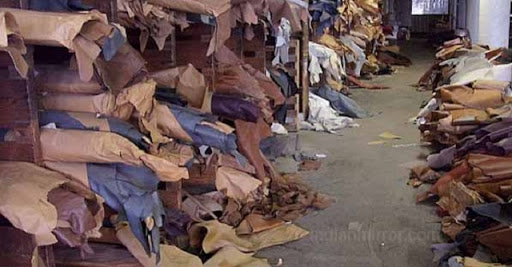Special leather shops to open in Bulawayo, Harare
THE Zimbabwe Leather Collective (ZLC) says plans are underway for the establishment of special leather shops in Bulawayo and Harare as part of efforts to enhance marketing and consumption of locally-produced leather products.
Zimbabwe has the capacity to meet local demand for leather products but faces numerous constraints, which have seen the country rely more on imports.
Working closely with the Government, private sector leather players have resolved to increase collaboration towards export-led domestic value addition.
Guided by the new Zimbabwe Leather Sector Strategy (2021-2025), which was officially launched in Bulawayo a fortnight ago, the interventions are expected to rejuvenate the sector and restore the country’s competitiveness in the leather value chain.
ZLC, which is a collaboration between tanners, footwear and leather manufacturers and ZimTrade, has said its drive was to assist the industry in enhancing output capacity and mitigating marketing costs through sharing of expenses.
Operational costs, logistical gaps and limitations in product marketing are among the tough challenges for most players in the leather sector, which has necessitated the need for a collective approach in harnessing target market opportunities in a win-win manner.
Mr Arnold Britten, a manager at Bulawayo-based Zambezi Tanners, who is one of the pioneers of the ZLC initiative, has said since their launch in February, there is a growing interest in domestic leather products.
“The Zimbabwean market is responding positively and ZLC aims to expand the market. We are working on setting up two shops — one in Bulawayo and two in Harare to showcase our products,” he said in a recent interview.
“We have agreed to collaborate as tanners and leather manufacturers in the broader value chain. We recently started this as a pilot project involving a number of companies to try and meet market needs and we have come up with a catalogue of products and will be riding on digital platforms.
“ZLC seeks to create a marketing medium to promote and grow exports of Zimbabwean leather and leather products.”
Mr Britten said local leather producers were concerned that Zimbabwe heavily relies on importation of safety ware yet local players had the capacity to supply the same.
“Quality and standard leather products are available in the country. We want to grow supplies into the region and the feedback so far is positive. We hope to continue pushing and adding new products. It is a fact that as a collective we are able to create bigger capacity to supply,” he said.
Mr Britten said the model is expected to benefit participating companies that include Millennium Footwear, Zambezi Tanners, Sagewood Inc, Bookset Leather Works, Safari Leather, Kara Sons and Good Hope Leather. Through the use of social media influencers and special manufacturer features, the collective expects to increase individual brand awareness for members and counter the effects of the Covid-19 lockdown, which has crippled traditional trade fair models and limited physical contact.
The leather industry occupies a place of prominence in the Zimbabwe economy in view of its potential for employment, growth and exports.-chronicle.cl.zw








